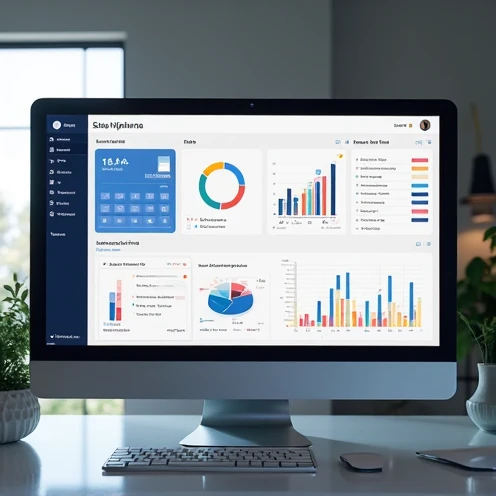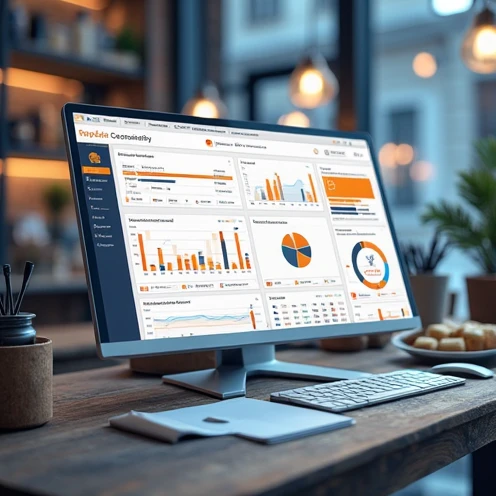Understanding Basic CRM and Why It Matters
Basic CRM, or Customer Relationship Management, is a streamlined system that helps you manage relationships with leads, customers, and partners. Instead of using spreadsheets or scattered notes, CRM puts all your client data in one accessible place.
Iklan Google AdSense
This kind of system is especially useful for small businesses and startups that need to stay organized without dealing with a bulky enterprise tool. By keeping it simple, Basic CRM tools allow you to focus on growing relationships, not just managing data.
Key Features That Make Basic CRM Effective
A Basic CRM isn’t just about storing contacts—it’s much more. Most systems include contact records, email logging, calendar syncing, and task reminders. These features reduce confusion and help you respond to customer needs quickly.
Iklan Google AdSense
Another essential feature is tracking your interactions. With every call, meeting, or email documented, you build a complete history for every customer. This leads to better conversations and deeper trust.
How Basic CRM Improves Your Sales Strategy
Sales teams thrive when they follow a consistent and structured workflow. Basic CRM supports this by organizing leads, automating follow-ups, and helping teams stay accountable.
You can assign contacts to specific team members, set deadlines, and even create email templates for common responses. As a result, nothing slips through the cracks, and potential customers feel valued and heard.
Enhancing Customer Support with a Simple System
Customer support becomes smoother when your team knows the history of a client’s experience. Basic Customer Relationship Management gives support reps the context they need to resolve issues faster and more personally.
You can track issues, flag high-priority requests, and assign tasks to team members. This structure means better resolution times and higher satisfaction.
Why Basic Customer Relationship Management Encourages Team Collaboration
When multiple departments use the same system, everyone stays aligned. Sales, marketing, and customer service can view shared notes, recent activities, and key customer insights.
This level of transparency ensures that messaging remains consistent. It also fosters teamwork because no one works in isolation—everyone sees the same full picture.
Simplicity Over Complexity: Why Basic Customer Relationship Management Works Best
While complex systems offer advanced tools, they often require extensive training and setup. Basic CRM removes that barrier. It’s designed to be intuitive, requiring little onboarding time.
Most small teams don’t need deep customization in the beginning. They need a reliable tool that simply works—one that they’ll actually use every day.
Choosing the Right Basic CRM Platform for Your Needs
There are many Basic CRM options out there, each with strengths. Your best choice depends on your workflow and budget. Tools like HubSpot Customer Relationship Management, Freshsales, and Zoho CRM are great places to start.
When selecting a tool, think about features like email integration, task automation, and ease of use. Choose one that complements your current tools and doesn’t create new friction.
Boosting Productivity with Customer Relationship Management Integration
Your CRM should not work in isolation. The best Basic CRM platforms offer integrations with tools you already use—email, calendars, web forms, and more.
Integrating your CRM with other platforms improves efficiency. For example, when an email arrives, it can automatically link to the customer profile. That saves time and reduces data entry.
Mistakes to Avoid When Using Basic Customer Relationship Management
Many teams set up a CRM but don’t use it consistently. Data becomes outdated, and the system loses value. To prevent this, assign clear roles and ensure team members regularly update records.
Another mistake is ignoring automation. Most Basic Customer Relationship Management tools include workflow automations, reminders, and alerts—features that can dramatically improve follow-through and productivity.
Planning for Growth Beyond the Basics
Starting with a Basic CRM is smart. But as your business grows, you’ll want more advanced features like reporting dashboards, sales funnels, or AI insights.
Fortunately, many Basic CRM platforms let you upgrade without switching tools. That way, your data and workflows stay intact while your capabilities expand.
Iklan Bersponsor Google






